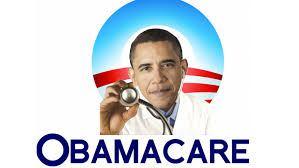As Republicans try one more time to pass a bill to strip millions of their health care, a huge policy crap-shoot without benefit of hearings, public debate, or input from experts, here’s another idea.

About 150 million Americans get health insurance through their employers, and its value (i.e., its cost) now averages about $18,000 annually. Combining this with salaries tells us that total earnings have not stagnated, but risen substantially.
This also means Americans effectively spend a growing part of their incomes on health care. It’s even more than that $18,000, what with rising deductibles, co-pays, etc. Of course, health care is something of value, improving quality of life, worth paying for. But paying for health insurance is not quite the same thing. Healthy people get little benefit. Indeed, the whole system is set up for them to subsidize the sick; and Obamacare expanded on that.

Recently, during a medical appointment with one doctor, another stopped in to “consult,” for a few minutes. He neither examined nor treated me. He billed $405. Because he could. This is why health care costs are out of control.
A NY Times op-ed last November (by Professors Regina Herzlinger, Barak Richman, and Richard Boxer) proposed a simple reform that would have a big impact.
The main reason our system evolved the way it did is because employee health benefits aren’t taxed like regular wages are (which, by the way, makes them even more valuable to workers, enlarging the impact on the “wage stagnation” picture).

So the writers propose that, without losing the nontaxableness, moneys earmarked for health insurance be given to employees, to purchase it themselves. If you spend the whole $18,000, fine; but if you spend less, you get to pocket the savings. (Even if you’re taxed on that part, it’s still a big benefit.)

It would also make the market for health care itself more like, well, a market. Competition among insurers would in turn exert pressure on providers to likewise innovate to offer more efficient, cost-conscious care. Meantime many more people would choose to use insurance as it was originally conceived, that is, to cover only big expenses, not routine ones. For the latter they would shop around, again mindful of costs. That would have a huge positive impact on the way health care is provided — and billed.
This reform seems like a no-brainer. And a huge vote winner too. Why has no politician latched onto this? Do the insurance companies (who wouldn’t like breaking open their comfy status quo) really have the whole system locked up?
Advertisements